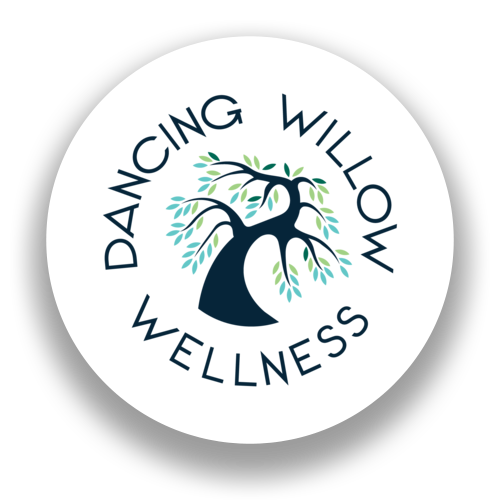Positive Self-Talk
Have you ever told yourself to remember not to do something, only to do it anyway?
A number of years ago, I took a college course that required a final exam. As my children were still young, I arranged to drop them off with my parents on the day of the exam. I had, coincidently, misplaced my spare car key.
So, driving the children to my parent’s house, anxious about this exam to begin with, and now concerned about losing my remaining car key, I reminded myself over and over, “don’t lock the keys in the car… don’t lock the keys in the car...” And of course, that is exactly what I ended up doing – I walked the children into their grandparent’s house and came back out to find I had locked the car and left the keys in the ignition.
Thankfully, my father came to the rescue (thanks Dad!) and drove me to the college in his car. As we drove, I wondered why on earth I had made such a foolish mistake. It turns out that there is a very good reason, and knowing the why and the how of it not only prevents inconveniences such as locking yourself out of a car or house, but can actually help us grow good habits and change bad ones.
Language is an ability so intrinsic to us as human beings that we rarely stop to think about how our minds turns random sounds into meaningful communication. But it is exactly this process that caused me – and many others – to do exactly the opposite of what I wanted.
When we hear a sentence that contains a negative word such as “don’t” or “stop” or “can’t” – ‘don’t lock the keys in the car” for example, our brain parses out the sentence, pulling it apart to figure out what it means. The negative qualifier, the “don’t” or “stop”, is often dropped to begin with in order to understand what the sentence is about. I needed to understand what “lock the keys in the car” meant before I could understand any instruction involving that action.
Only when our brain is sure of the context of the sentence is the negative qualifier added back in to understand the entire request.
Most of the time we automatically add the negative qualifier back in, and comply easily with such instructions, but if we are preoccupied, perhaps stressed or anxious, our brains sometimes forget that final step, and omit the negative, which result in us doing exactly the opposite of what was asked. When I was saying “don’t lock the keys in the car” to myself repeatedly, what my preoccupied and anxious brain heard was “lock the keys in the car” – which is exactly what it did.
By understanding this quirk of our brains, we can greatly improve the ways talk to ourselves and others. How many times have we heard, “Don’t worry” or “don’t be nervous” or “stop stressing”? All too often, these well-meaning phrases are spoken to a person whose brain is momentarily incapable of remembering the negative qualifier, due to those exact feelings of worry, nervousness or stress. Instead, their subconscious mind interprets those statements as “Worry!”, “Be nervous!” and “Be stressed!”. If we use phrases such as, “It’s ok, things are going well”, or “You’ve got this, you can do it” that have no negative qualifiers to begin with, they are easier for stressed minds to absorb, less likely to be misunderstood by a preoccupied brain, and far more likely to achieve the goal of helping someone feel better.
If you need convincing of this, try walking up to someone you know and saying “Don’t panic!” Very likely, you will see confusion and then fear dawn in their eyes, even though you have clearly instructed them not to panic.
When it comes to kicking a bad habit, this is why saying to ourselves “I must not bite my nails” is doomed to failure. Bad habits, whether physical behaviours like nail biting or smoking, or mental and emotional behaviours such as destructive self-talk, are often triggered by feelings of stress, and, as we now know, hearing a negative command when stressed often has the opposite effect to the one intended. If you bite your nails when nervous and then tell yourself to stop, your brain may interpret that as “I must bite my nails” and will be only too happy to comply. When trying to give up a bad habit, think instead of replacing it with a new healthier habit that can take the place of the old one, and use positive phrases in your self talk. “I enjoy looking at my manicured nails” or “I take good care of my hands and fingernails”.
Affirmations should likewise always be phrased in the positive, never in the negative. Rather than “I am not nervous” say, “I feel confident”. Rather than “I will not smoke” say, “I chose healthy habits”. Whether you speak these affirmations to yourself or someone else, or leave sticky notes to yourself, make sure a stressed brain can not misinterpret them. Keep the phrases short and positive.
This is also a great thing to remember when speaking to children. Young children especially can have difficulty remembering to add that negative back in when they hear a command. Phrases such as, “Don’t jump on the sofa” may not yield great results. Instead, try, “The sofa is for sitting on, the floor is for jumping on”. This removes the negative qualifier and gives clear direction that is much easier for young children to comprehend and follow.
This is a small, and simple trick, and one that is easy to apply to many aspects of your life. It can have a significant impact on your ability to change your habits, gain control of your self talk and keep your car keys where they should be!
Rebecca




